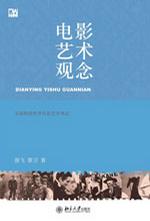-

电影艺术观念
《电影艺术观念》是一部全面阐述世界电影艺术观念的著作,其显著特色在于将权威的电影学术理论与生动的电影艺术创作结合在一起,将清晰的电影历史脉络与鲜明的电影艺术家个性结合在一起,将独特的电影艺术表达与多元的国际社会文化及哲学美学背景结合在一起,打通学术性与实践性之间的壁垒,形成一种深入浅出、雅俗共赏的写作风格,让读者在轻松阅读之中汲取电影艺术素养。 《电影艺术观念》是一部电影艺术理论著作(涉及好莱坞经典叙事体系、蒙太奇、长镜头、现代及后现代电影观念),又不乏对电影艺术家进行的创作个案研究(涉及格里菲斯、爱森斯坦、奥森·威尔斯、戈达尔、伯格曼和科波拉等电影艺术大师),它还可以被当作一本风格独特的世界电影史(涉及类型电影、先锋派、纪录电影、新现实主义、“新浪潮”、新好莱坞和独立电影等重要流派)。 -

Naked City
As cities have gentrified, educated urbanites have come to prize what they regard as "authentic" urban life: aging buildings, art galleries, small boutiques, upscale food markets, neighborhood old-timers, funky ethnic restaurants, and old, family-owned shops. These signify a place's authenticity, in contrast to the bland standardization of the suburbs and exurbs. But as Sharon Zukin shows in Naked City, the rapid and pervasive demand for authenticity--evident in escalating real estate prices, expensive stores, and closely monitored urban streetscapes--has helped drive out the very people who first lent a neighborhood its authentic aura: immigrants, the working class, and artists. Zukin traces this economic and social evolution in six archetypal New York areas--Williamsburg, Harlem, the East Village, Union Square, Red Hook, and the city's community gardens--and travels to both the city's first IKEA store and the World Trade Center site. She shows that for followers of Jane Jacobs, this transformation is a perversion of what was supposed to happen. Indeed, Naked City is a sobering update of Jacobs' legendary 1962 book, The Death and Life of Great American Cities. Like Jacobs, Zukin looks at what gives neighborhoods a sense of place, but argues that over time, the emphasis on neighborhood distinctiveness has become a tool of economic elites to drive up real estate values and effectively force out the neighborhood "characters" that Jacobs so evocatively idealized. With a journalist's eye and the understanding of a longtime critic and observer, Zukin's panoramic survey of contemporary New York explains how our desire to consume authentic experience has become a central force in making cities more exclusive. -

Otaku
In Japan, obsessive adult fans and collectors of manga and anime are known as otaku. When the underground otaku subculture first emerged in the 1970s, participants were looked down on within mainstream Japanese society as strange, antisocial loners. Today otaku have had a huge impact on popular culture not only in Japan but also throughout Asia, Europe, and the United States. Hiroki Azuma’s Otaku offers a critical, philosophical, and historical inquiry into the characteristics and consequences of this consumer subculture. For Azuma, one of Japan’s leading public intellectuals, otaku culture mirrors the transformations of postwar Japanese society and the nature of human behavior in the postmodern era. He traces otaku’s ascendancy to the distorted conditions created in Japan by the country’s phenomenal postwar modernization, its inability to come to terms with its defeat in the Second World War, and America’s subsequent cultural invasion. More broadly, Azuma argues that the consumption behavior of otaku is representative of the postmodern consumption of culture in general, which sacrifices the search for greater significance to almost animalistic instant gratification. In this context, culture becomes simply a database of plots and characters and its consumers mere “database animals.” A vital non-Western intervention in postmodern culture and theory, Otaku is also an appealing and perceptive account of Japanese popular culture.
大众文化教程
在20世纪与21世纪交替的历史性时刻,中国文化面临深刻转型,其最为重要的标志或许就是大众文化的兴起、繁荣及其对于整修思想-文化-学术图景的改写与重描。与此同时,学术界对于这种转型的反应集中表现为以大众文化为主要对象的新知识领域——文化研究的兴起。 本书对大众文化作了详细的介绍。内容包括:大众、大众社会与大众文化;大众文化的几种主要研究范式;影视文化;流行小说;流行音乐;网络文化;广告文化;视觉文化等。本书内容丰富,讲解通俗易懂,具有很强的可读性。
香港歌词八十谈
這書是黃志華、朱耀偉繼《香港歌詞導賞》後再度攜手之作。除了沿用《香港歌詞導賞》裡歌詞「逐首談」的形式,也嘗試替每個年代勾勒出歌詞發展的面貌。書中所選論歌曲跨越9個年代,換句話說是「八十年八十首」─書中部分歌曲以不同方式紀錄香港歷史大事,從後六七暴動的〈鐵塔凌雲〉到新移民潮的〈東方之珠〉,後過渡期的〈皇后大道東〉到九七前夕的〈太平天國〉,沙士時期的〈新聞女郎〉到中港年代的〈南方舞廳〉,回歸十年的〈始終有你〉到五區公投的〈女兒雄〉,可說是香港社會的極簡史,也與香港人的家國身份有密切關係。從中既可看到香港的歷史變化,也可見證香港歌詞的異彩紛呈。
Creativity and Its Discontents
“Making strategic use of the antagonistic role often played by China in the new global economy, Laikwan Pang raises fundamental questions about the hegemonic discourse of creativity as anchored in EuroAmerican traditions of rights, authorship, private property ownership, and reproduction. An admirably ambitious—and creative—book!”—Rey Chow, author of Sentimental Fabulations, Contemporary Chinese Films . “Laikwan Pang’s thoroughly engaging study sets a new standard for analysis of the ‘creative economy,’ not just in China, but in every country where government officials have elevated the pursuit of creativity into industrial policy.”—Andrew Ross, author of Fast Boat to China